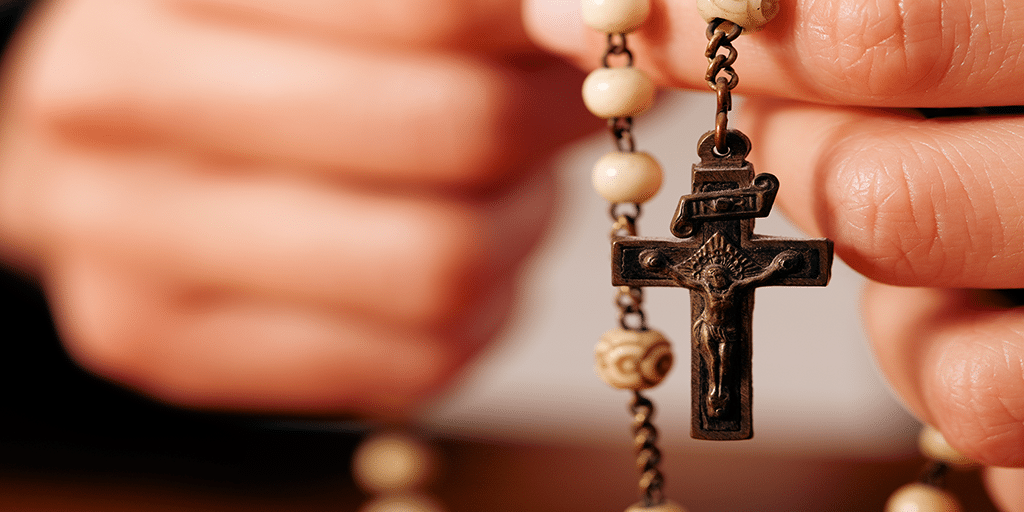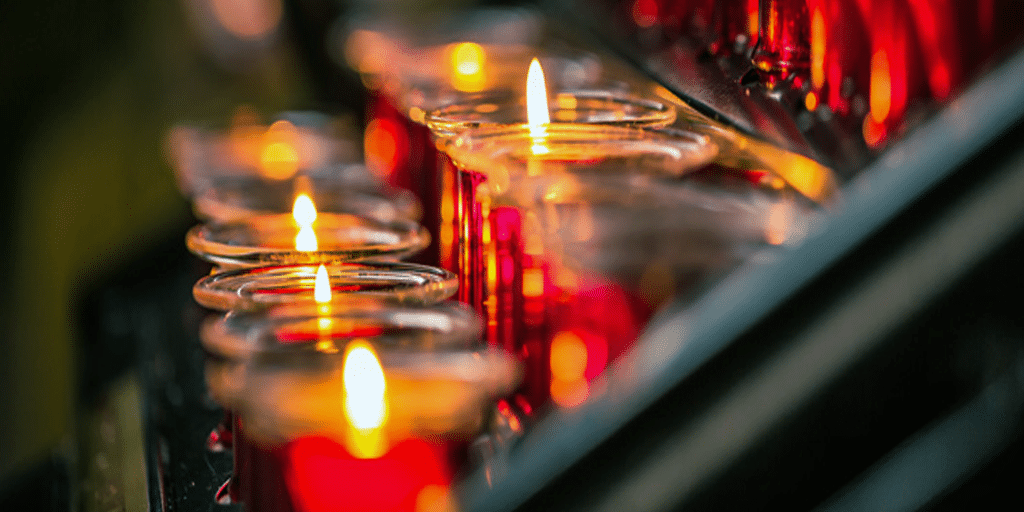Here at The John Ankerberg Show we understand that this is a controversial topic, and that the stance in this article may not be a fully understood or popular one. We encourage you to discuss and learn from each other in the comment section below, and we ask that you are kind, respectful, and educated in your conversations. We are not interested in censoring your opinions on this topic, but we do want to make you aware that comments that don't follow these rules are subject to moderation in order to keep the more profitable conversations going, no matter the stance taken. We hope you enjoy this article as a thought-provoking resource and we encourage you to look through the rest of our article database as you search for answers about the Christian faith. __________________________________________________ Should Roman Catholicism really be classified as a Christian religion? No. Roman Catholicism is not a Christian religion and in this article we will explain why. Many Evangelical Christians today have very positive feelings about both the Pope in particular and Roman Catholicism in general. Others are uncertain as to how Roman Catholicism should properly be classified in light of biblical teaching. That such support and/or perplexity is undergirded even by many Christian organizations can be seen in the following response sent out to those inquiring about Catholicism by a leading Christian apologetics ministry. This standard reply was given by a group which specializes in the analysis of comparative religion and cultic theology. In answer to the question, “Is Roman Catholicism Biblical?”, the verbatim response was as follows (copy on file):
- 1. Does the Catholic Church teach orthodox Christianity? Answer: Yes.
- 2. Does the Catholic Church teach salvation by good works or by faith? Answer: They teach it by faith.
- 3. Does the Catholic Church teach another gospel? Answer: No.
- The purpose of this book is to show that the Roman Catholic Church in its most important work sanctification is a failure. Among its members crime and immorality are greater than the unchurched or the members of other churches. Whatever else the Roman Catholic Church may be able to do... it cannot, it has not, and it does not make the majority of its members better and holier....
- That the Roman Catholic Church has been one of the most powerful influences in the history of all civilization cannot be seriously denied....
- [Nevertheless] It is my contention and my sincere conviction, from my experience in the Catholic educational system, my life of fifteen years in the priesthood, and thirteen years of constant observation and intense study since leaving the Church, that its influence on all civilization has been far more of evil than of good....
- Morally, this book will show the high rate of crime and sin among Roman Catholics everywhere, and particularly in the United States. It will also demonstrate that this immorality is not in spite of Catholic education and training, but directly because of it. [10]
- Justification as the infusing of righteousness based on good works, not the imputation of righteousness as a judicial decree of God.
- The Mass “as truly propitiatory” and, in some sense, truly re-sacrificing Christ.
- The seven Catholic sacraments as infusing grace for purposes of sanctification and salvation. (But if the Sacrament of Holy Orders confers supernatural power on Roman Catholic bishops, priests and deacons to “serve as a teacher as Christ Himself,” [14] how is it that Roman Catholic bishops, priests and deacons can so consistently oppose the key teaching of Scripture?)
- Baptism, penance, suffering in purgatory, indulgences etc., as having the power to remit or forgive sin or its punishment.
- Catholicism alone as the one true Church.
- The pope as infallible in matters of doctrine and morals. Further, Peter was the first pope, and Christ instituted the office of the papacy.
- Catholic tradition has divine authority and is to be equated with the word of God.
- The Apocrypha is also the word of God.
- The teaching authority of the Church as the final and only correct interpreter of the Bible to its people. This means that individual Christians cannot properly interpret the Bible on their own. This is why the Protestant view of individual interpretation is referred to as a product of “theological rationalism” and condemned by Rome. [15]
- Mary was born without sin, is sinless, ascended bodily into heaven and is a “coRedemptrix” “Mediatrix” and “Queen of Heaven” in God’s plan of salvation. She is to be venerated/“worshipped” and offers all the graces of Christ to men who adore her, whether in the Church or at thousands of her shrines/altars throughout the world.
- Faith is an intellectual assent to the doctrines of the Church. In fact, true faith “demands that we believe” in Roman Catholic doctrines without which we cannot be sanctified or saved. [17] (Apparently then, Christians whose faith in the Bible alone compels them in their conscience to reject Catholic belief are without true saving faith.)
- Catholic saints are to be venerated. True “saints” and “priests” are comprised of an extremely minuscule portion of the body of Christ.
- Sin is to be compartmentalized into moral/venial categories.
NOTES
- ↑ Robert C. Broderick, ed., The Catholic Encyclopedia, revised and updated (NY: Thomas Nelson Publishers, 1987), p. 528, emphasis added.
- ↑ Ibid., p. 44.
- ↑ Ibid., p. 99.
- ↑ Ibid., p. 115.
- ↑ Ibid., p. 170, emphasis added.
- ↑ Ibid., p. 381.
- ↑ Ibid., p. 499.
- ↑ Ibid., p. 371.
- ↑ F. F. Bruce, The Canon of Scripture (Downers Grove, IL: InterVarsity, Press, 1988), pp. 26, 2.
- ↑ Emmett McLoughlin, Crime and Immorality in the Catholic Church (NY: Lyle Stuart, 1964), p. 10.
- ↑ Patrick Dixon, The Whole Truth About AIDS (Nashville: Nelson, 1989), p. 22; cf. Jason Berry, Lead Us Not Into Temptation and US. News and World Report, October 5, 1992.
- ↑ John Ankerberg and John Weldon, Everything You Ever Wanted to Know About Mormonism (Eugene, OR: Harvest House, 1992).
- ↑ Gerrit C. Berkowuer, The Conflict with Rome (Philadelphia, PA: Presbyterian and Reformed,1958), pp. 191-211; Walter M. Abbot, gen. ed., The Documents of Vatican II (NY: Guild Press, 1966), p. 141; Paul G. Schrotenboer, ed., Roman Catholicism: A Contemporary Evangelical Perspective (Grand Rapids, MI: Baker, 1980), p. 41; H. M. Carson, Dawn or Twilight? A Study of Contemporary Roman Catholicism (Leicester, England: InterVarsity Press, 1976), pp. 41-42.
- ↑ Broderick, ed., p. 438.
- ↑ Ibid, p. 514.
- ↑ Abbott, pp. 117-118, emphasis added.
- ↑ Broderick, ed., p. 213.





Leave a comment